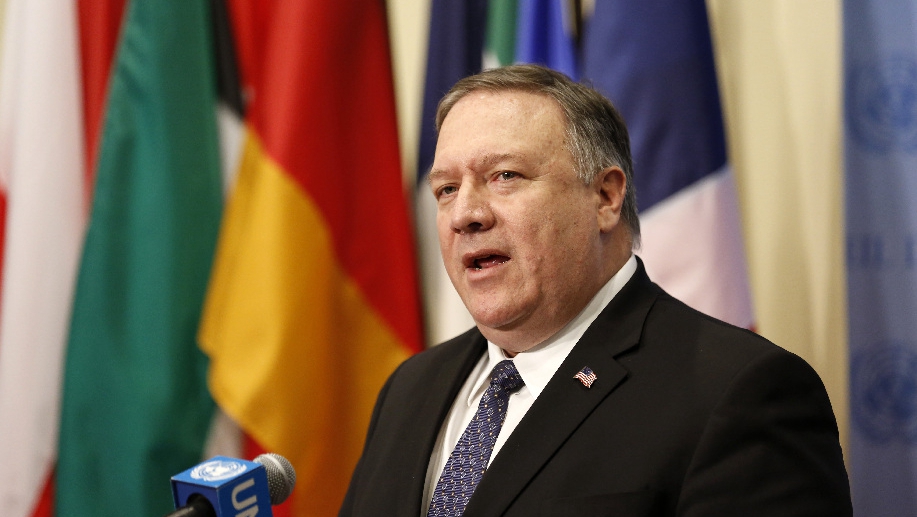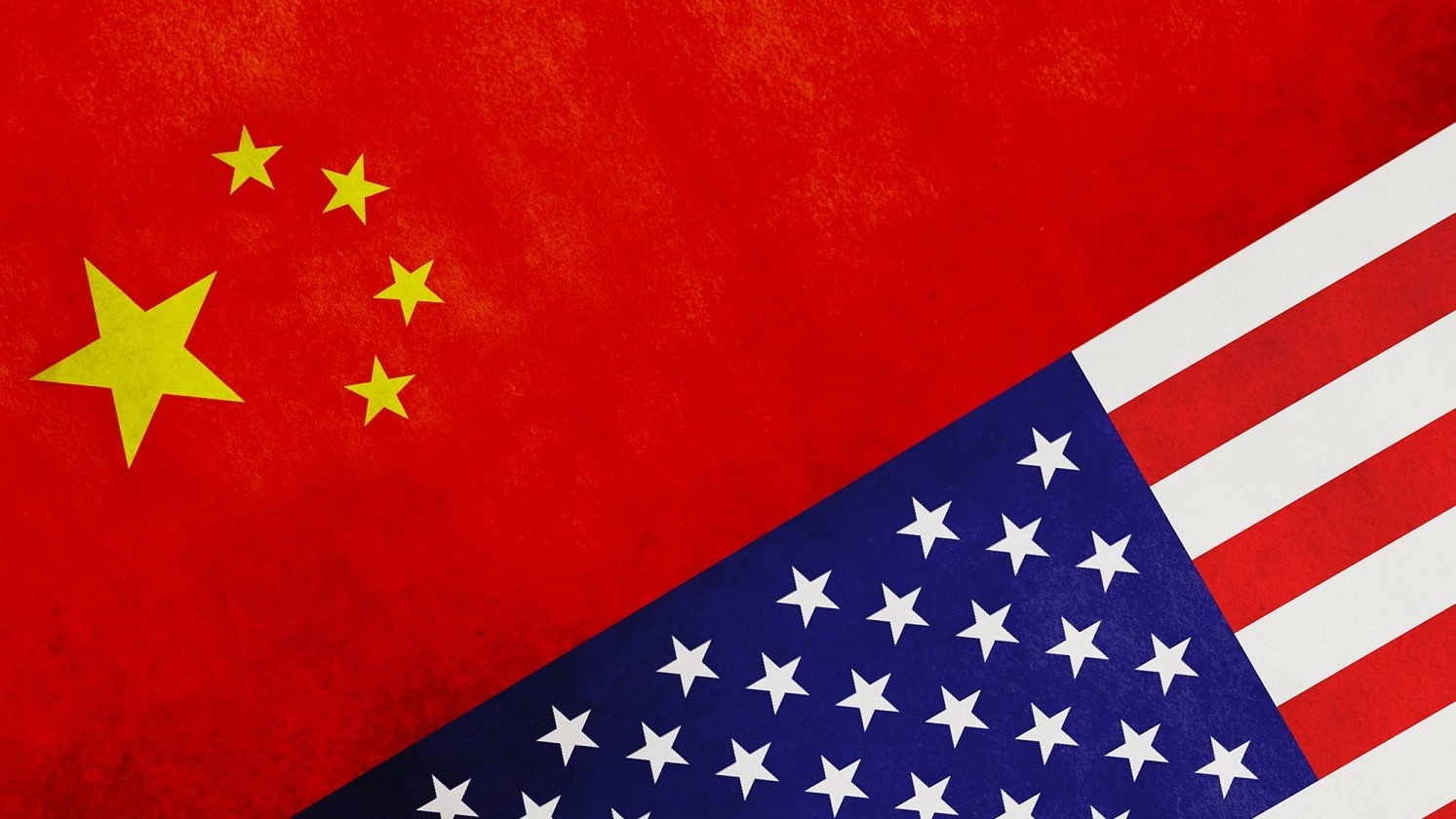
U.S. Secretary of State Mike Pompeo speaks to the press on the situation in Venezuela, at the UN headquarters in New York, January 26, 2019. /Xinhua
U.S. Secretary of State Mike Pompeo speaks to the press on the situation in Venezuela, at the UN headquarters in New York, January 26, 2019. /Xinhua
Editor's note: Tom Fowdy is a British political and international relations analyst and a graduate of Durham and Oxford universities. He writes on topics pertaining to China, the DPRK, Britain and the U.S. The article reflects the author's opinions, and not necessarily the views of CGTN.
U.S. Secretary of State Mike Pompeo gave a televised address at the virtual Copenhagen Democracy Summit on Saturday, titled: "Europe and the China Challenge." Not surprisingly, America's so-called top diplomat sought to portray Beijing as a "rogue actor" and weaponize Cold War themes in order to present China's relations with the world as a binary struggle between freedom and democracy.
Although Pompeo claimed that the United States was not forcing the continent to "choose" between them and China, but that the "Communist Party" was and that the choice was between "freedom and tyranny," stating China had "taken advantage" of the "goodwill" of the West.
The address was very much typical of American fanaticism, seeking to portray the United States in a binary struggle between good and evil and simplify complex geopolitical events into a fairytale genre, whipping up profound levels of paranoia and suspicion against the given target. It has long used this rhetoric throughout the past century to force countries to take a side.
Pompeo flat refuses to accept the existence of China on its own terms, over-obsesses with the Communist Party and rides on the premise that China "has to be changed." Yet in doing this, his address is riddled with contradictions, exaggerations and a deliberate negation of the administration's true foreign policy in practice, which does not rest upon "values" but an attempt to weaponize fear in addresses like this in order to unilaterally pressure countries to disregard their own interests in the name of America First.
The United States has a long history of whipping up mass hysteria on a given "threat" in order to shape global discourse in its favor and push other countries into co-opting with American interests. In order to do this with China, Pompeo has developed a focus on naming the Communist Party of China, emphasizing it, and paint it in adversarial terms as a global threat. When referring to China, he aims to utilize the country's name as little as possible and instead opts for its ruling party.
The reasons he does this are opportunistic, but also ideological. Riding on Cold War thinking and proscribed fears of Communism, he believes that China's government is inherently illegitimate and normatively opposed by its population, therefore he deprives it of the acknowledgment that it governs China at all.

This is also designed to deflect from allegations of racism or Sinophobia, despite the fact that in the same speech he emphasizes the idea that letting in Chinese students was a mistake, tarring with links to the People's Liberation Army.
In using this name, Pompeo moved to present history of engagement in subversive ways, painting it as a fateful mistake which has infiltrated, subverted and led to "the party" pushing global designs on the West aiming to undermine democracy. This is simply not true. Citing this, he claimed "the party" undermined numerous international treaties.
Yet this extraordinary rhetoric from an administration that has withdrawn from the Paris climate accords, the Iran deal, the Intermediate-Range Nuclear Forces (INF) Treaty, the World Health Organization, the United Nations Human Rights Council, the United Nations Scientific Cultural and Scientific Organization and more. Who is really undermining the world system here?
Thus, Pompeo's call for a moralistic struggle against China from the West seemingly ignores and fails to do justice to the way Washington as of present is treating the world. He pledges support to Europe on the premise of values, yet many European nations see the United States as an increasingly unreliable partner and views of America have sunk to record lows.
A recent poll has shown that in some European nations, including Britain, Italy, Germany and Sweden, the public at large believed that the U.S. is a bigger threat to the world than China is. In addition, how can Pompeo say he stands with Europe when his administration is in the process unilaterally of removing thousands of troops from Germany? Or when they are threatening the European Union with tariffs? Is this democratic solidarity? Or values?
In this case, Pompeo's speech seems to say a lot, but it lacks real substance because what he says and what the administration does appear to be two different things. It's a masquerade. The invocation of values in a chauvinistic way by the Secretary of State ultimately overlooks the fact that this struggle is not a "clash of values" but is merely an advocation of unilateral and strategic American preferences by which they, despite what Pompeo says, wants to force on others.
In doing so, his rhetoric fundamentally misleads because by demonizing, scaremongering and whipping up hysteria against China, he aims to fundamentally attack and shame countries that have legitimate interests in cooperating, engaging and maintaining stable ties with Beijing. It's shameless, dishonest and malign fearmongering which negates the obvious challenge and instability which "America First" politics is hammering the global system, burning bridges and building walls in the fanaticism of Cold War nostalgia.
(If you want to contribute and have specific expertise, please contact us at opinions@cgtn.com.)